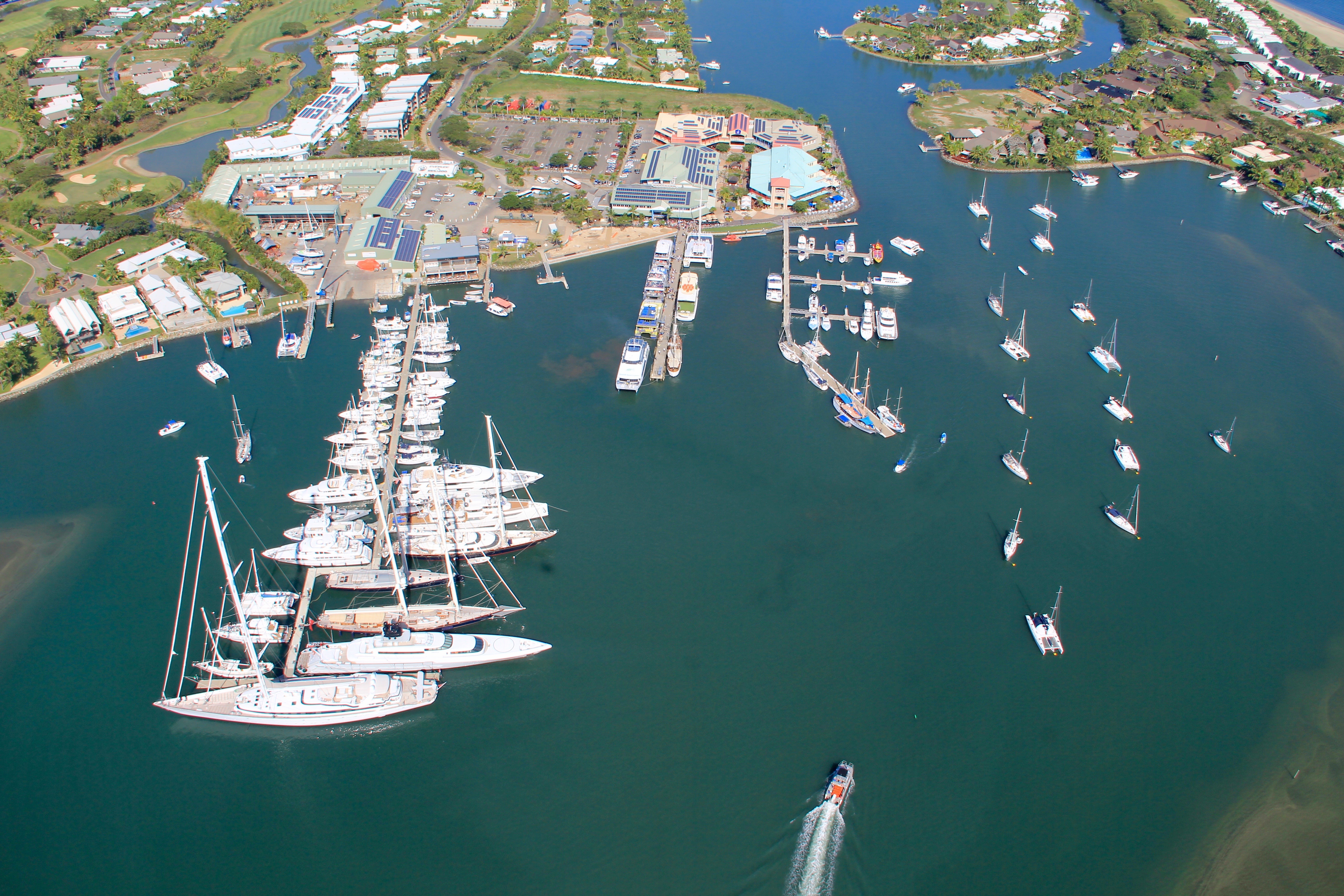Fiji Clean Boating Program, Level 3 International Clean Marina Certification & International Fish Friendly Accreditation
(
Private sector
)
#OceanAction41694
Description
The International Clean Marina Program is administered by the Marina Industries Association (MIA), the body representing the marina industry in Australia and the Asia-Pacific region, drawing membership from marinas, yacht clubs, boat clubs, slips, boat yards, berthing, mooring and many other associated businesses.
The International Clean Marina Program is an international, voluntary accreditation system with the goal to reduce non-point source pollution associated with boating/marina facilities, and to promote clean water, clean air and thriving marina industry businesses. Non-point sources of pollution occur when water runs over land, picks up pollutants and then deposits them in surface waters.
Mismanaged pollutants from everyday marina activities can enter a marina basin as non-point source pollution. Of course, marinas and boatyards are not the only source of this type of pollution into our nations waters, and the Clean Marina Program is only part of a much larger effort to reduce non-point sources of pollution into our seas and waterways.
Port Denarau Marina has identified opportunities and implemented practices to control pollution associated with, mechanical activities, slipping/retrieval and storing boat, general maintenance programs, emergency planning, painting & fibreglass repairs, fuelling and facility management.
Fish Friendly Marinas have been developed to inform marina managers on how to maximise the benefits for fish and recognise those operators actively working to improve fish habitat. Fish Friendly Marinas provide advice and supporting material to help marina operators incorporate beneficial outcomes for native fish into their existing operational plans, such as ensuring their marina is free from marine pests and providing habitat for native fish.
The initiative is attached to MIAs International Clean Marinas Program and the accreditation is an add-on for marinas with Level 4 and Level 3 Clean Marina accreditation. It requires an independent audit to satisfy criteria.
SDGS & Targets
Goal 14
Conserve and sustainably use the oceans, seas and marine resources for sustainable development
14.1
By 2025, prevent and significantly reduce marine pollution of all kinds, in particular from land-based activities, including marine debris and nutrient pollution
14.1.1
(a) Index of coastal eutrophication; and (b) plastic debris density
14.2
By 2020, sustainably manage and protect marine and coastal ecosystems to avoid significant adverse impacts, including by strengthening their resilience, and take action for their restoration in order to achieve healthy and productive oceans
14.2.1
Number of countries using ecosystem-based approaches to managing marine areas
14.3
Minimize and address the impacts of ocean acidification, including through enhanced scientific cooperation at all levels
14.3.1
14.4
By 2020, effectively regulate harvesting and end overfishing, illegal, unreported and unregulated fishing and destructive fishing practices and implement science-based management plans, in order to restore fish stocks in the shortest time feasible, at least to levels that can produce maximum sustainable yield as determined by their biological characteristics
14.4.1
14.5
By 2020, conserve at least 10 per cent of coastal and marine areas, consistent with national and international law and based on the best available scientific information
14.5.1
14.6
By 2020, prohibit certain forms of fisheries subsidies which contribute to overcapacity and overfishing, eliminate subsidies that contribute to illegal, unreported and unregulated fishing and refrain from introducing new such subsidies, recognizing that appropriate and effective special and differential treatment for developing and least developed countries should be an integral part of the World Trade Organization fisheries subsidies negotiation
14.6.1
Degree of implementation of international instruments aiming to combat illegal, unreported and unregulated fishing
14.7
By 2030, increase the economic benefits to Small Island developing States and least developed countries from the sustainable use of marine resources, including through sustainable management of fisheries, aquaculture and tourism
14.7.1
Sustainable fisheries as a proportion of GDP in small island developing States, least developed countries and all countries
14.a
Increase scientific knowledge, develop research capacity and transfer marine technology, taking into account the Intergovernmental Oceanographic Commission Criteria and Guidelines on the Transfer of Marine Technology, in order to improve ocean health and to enhance the contribution of marine biodiversity to the development of developing countries, in particular small island developing States and least developed countries
14.a.1
14.b
Provide access for small-scale artisanal fishers to marine resources and markets
14.b.1
Degree of application of a legal/regulatory/policy/institutional framework which recognizes and protects access rights for small‐scale fisheries
14.c
Enhance the conservation and sustainable use of oceans and their resources by implementing international law as reflected in United Nations Convention on the Law of the Sea, which provides the legal framework for the conservation and sustainable use of oceans and their resources, as recalled in paragraph 158 of "The future we want"
14.c.1
Number of countries making progress in ratifying, accepting and implementing through legal, policy and institutional frameworks, ocean-related instruments that implement international law, as reflected in the United Nations Convention on the Law of the Sea, for the conservation and sustainable use of the oceans and their resources
SDG 14 targets covered
| Name | Description |
|---|---|
| 14.1 | By 2025, prevent and significantly reduce marine pollution of all kinds, in particular from land-based activities, including marine debris and nutrient pollution |
| 14.2 | By 2020, sustainably manage and protect marine and coastal ecosystems to avoid significant adverse impacts, including by strengthening their resilience, and take action for their restoration in order to achieve healthy and productive oceans |
| 14.4 | By 2020, effectively regulate harvesting and end overfishing, illegal, unreported and unregulated fishing and destructive fishing practices and implement science-based management plans, in order to restore fish stocks in the shortest time feasible, at least to levels that can produce maximum sustainable yield as determined by their biological characteristics |
Deliverables & Timeline
Resources mobilized
Partnership Progress

Feedback
Action Network

Timeline
Entity
SDGs
Geographical coverage
Other beneficiaries
2) Marina guests and tenants
3) Fijian marine environment
Ocean Basins
Communities of Ocean Action
More information
Countries
Contact Information
Nigel Skeggs, Mr

